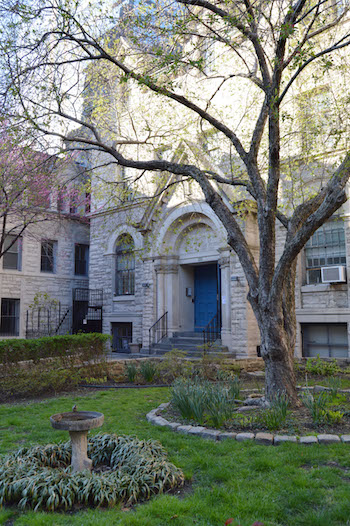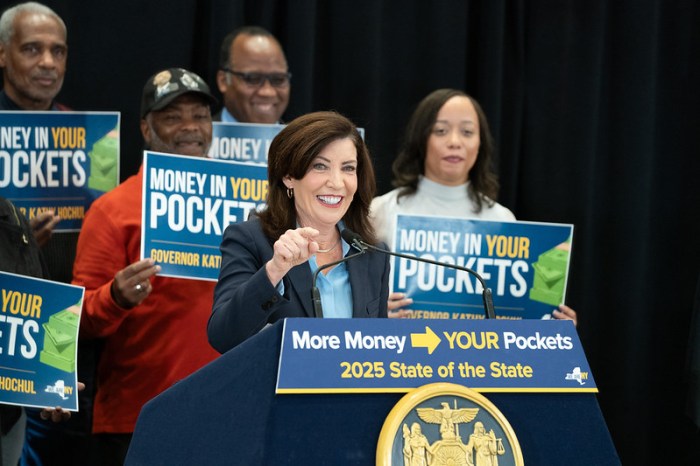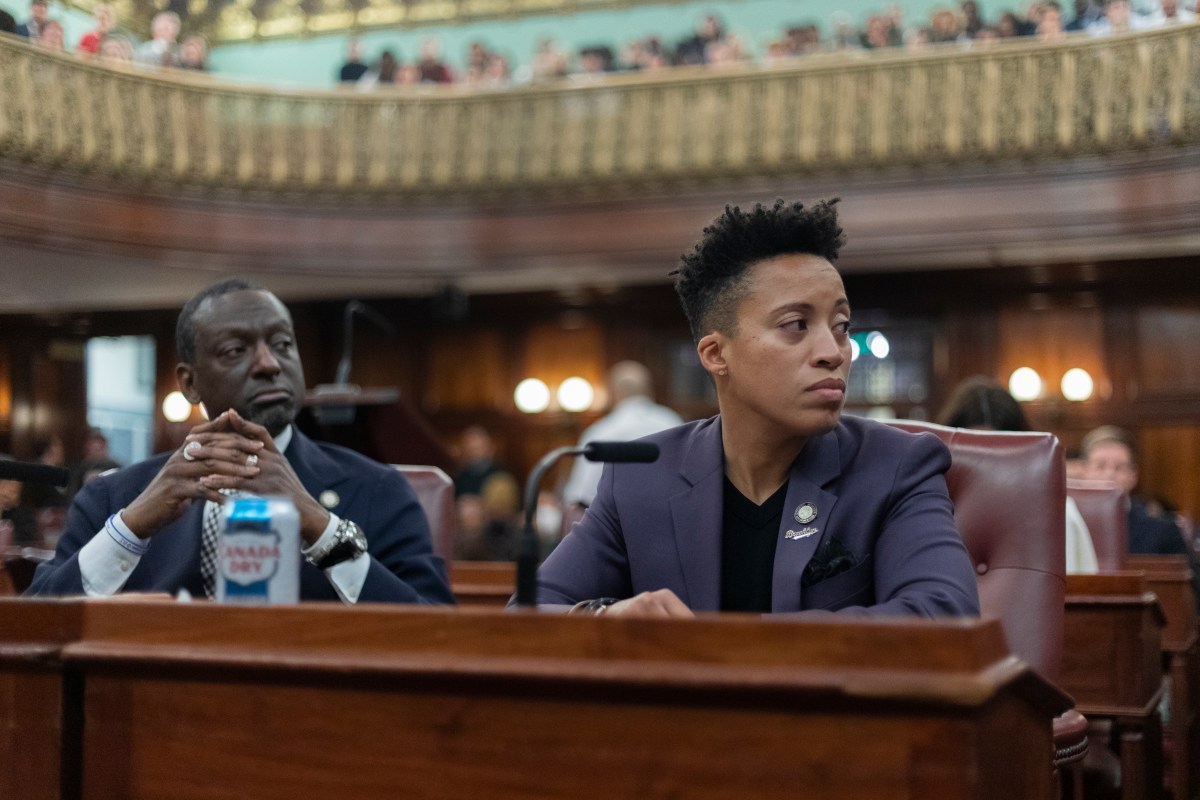
BY JACKSON CHEN | The City Council’s Land Use Committee voted on June 7 to reform the city’s landmarking process by creating strict deadlines for the Landmarks Preservation Commission to designate landmarks and historic districts.
According to the bill, Intro 775A, the LPC would be allowed one year to designate an individual property as a landmark. While on the commission’s calendar, the property is afforded certain protections from developers. But the measure would have the property removed from the calendar if a year passes without any action by the LPC.
The commission can choose to extend the time for considering a landmarking designation by another year, but would have to receive consent from the property owner, according to the bill that’s spearheaded by the Council’s Land Use Committee chair, David Greenfield of Brooklyn, and its Landmarks Committee chair, Peter Koo of Queens.
Opposition to the proposed legislation among preservationists and a handful of councilmembers is focused on the veto given to property owners on extending LPC’s consideration of a potential landmarking.
Intro 775A also sets a timeline of two years for an LPC decision regarding a potential historic district before it is de-calendared, with no opportunities for extensions.
“This legislation as it exists today represents a very modest reform of a 50-year-old landmarking process,” Greenfield said, “that has often moved properties and districts too slowly through a process that was too opaque and too unpredictable.”
As a result of having no deadlines, the bill’s proponents said, the LPC accumulated nearly 100 items in landmark limbo over several decades. But this year, the commission began addressing the 95 potential landmarks and granted some their designations, including St. Michael’s Episcopal Church at 99th Street and Amsterdam Avenue, which won landmark status in April.
For the 32 councilmembers who have expressed support for the measure, a one-or-two-year deadline on the LPC’s decisions would prevent any future backlogs and expedite the landmarking process.
“We have carefully examined the average and median times for individual landmarks and historic districts in order to come up with a fair timeline,” Koo said. “We understand landmarking is a time-consuming process that requires research, consultation, and consensus.”
According to a City Council report released on June 3, records starting from the 1990s show that 82 percent of individual properties were given their landmark designations in less than one year of being on the LPC calendar.
The same Council report, “Landmarks for the Future,” looked at historic districts and concluded that 74 percent of them took less than a year to be designated.
But preservationists are criticizing the report’s conclusions and say the bill could lead to the destruction of landmark-worthy properties.
Simeon Bankoff, the executive director of the Historic Districts Council, pointed out that the report’s numbers for landmarked properties that weren’t designated within a year would be much higher if the report included the full 50-year history of landmarking in the city.
Bankoff and other preservationists, including Sean Khorsandi, the advocacy director at Landmark West!, were critical of the report, which they said calls for much more work from LPC, without providing it with any additional funding.
“You’re basically saying the LPC should be designating more but you’re not giving it any additional resources to do that,” Khorsandi said. “Instead you’re putting a gun to its head and saying it must be done now.”
He added that while deadlines in theory are beneficial, he feels the proposed bill is unnecessary.
“I think this is a solution to a problem that doesn’t exist,” Khorsandi said. “Meenakshi Srinivasan and the commission have been committed to working on the backlog. There’s no need for this legislation.”
And the preservationists aren’t alone as they have a handful of allies on the Council.
To improve on the current bill, East Side Councilmember Dan Garodnick proposed allowing the LPC a one-time limited extension without the property owner’s permission.
“The process is flawed, decisions can be shrouded in mystery, and they can drag on for countless years,” Garodnick said. “But the bill, while good, does not allow for an escape valve in a situation where the LPC is close, ready, but simply runs out of time.”
East Side Councilmember Ben Kallos, emphasizing that he too supports the idea of imposing deadlines, said he was worried about what he characterized as a small but dangerous loophole in the bill. There would be times, he said, when the LPC isn’t able to come to a decision in a year, causing the item to be de-calendared and then become vulnerable to developers looking to immediately demolish the property.
“We want to make sure if something doesn’t make it in the one or two years that there’s a grace period where it could be re-calendared without the building or neighborhood getting razed,” Kallos said at a City Hall rally against the bill a day prior to the committee hearing.
Greenfield contended that this legislation’s only goal was the reform of the landmarking process and dismissed concerns over property owners who “who run out the clock” and so open up their sites for demolition and redevelopment.
But, according to West Side Councilmember Corey Johnson, who also appeared at the June 6 opposition rally, discussions he, Kallos, and Lower East Side Councilmember Rosie Mendez, also a critic of the bill, had with Greenfield over allowing LPC to extend the one-year deadline unilaterally and to prevent demolition of property as it takes steps to do so yielded no changes in the bill, which goes before the full Council on June 9. [Editor’s note: Subsequent to this posting, the vote was moved up to June 8.]
For his part, Greenfield insisted that his bill’s aim is all about timely decisions and could help speed the landmarking of desirable properties.
“If you have to do a report and there’s no deadline on the report, then it may take you a year, or two years, or five years to do the report,” Greenfield said. “If there is a 60-day, or 100-day, or one-year deadline on the report, magically, that report will get done on time because there is a deadline.”
Representatives of the LPC could not be reached for comment as of press time.





































